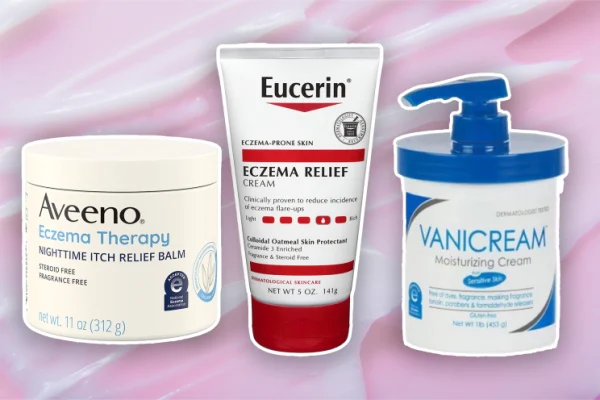
Eczema Moisturizer
Finding the right moisturizer when you’re dealing with eczema can feel like searching for a needle in a haystack. It’s a journey filled with trial and error, and it’s completely understandable if you feel overwhelmed. But fear not, because I’m here to guide you through the process and help you find the perfect eczema moisturizer to soothe your skin.
Understanding Eczema
Before we delve into the world of moisturizers, let’s take a moment to understand eczema. Eczema, also known as atopic dermatitis, is a chronic skin condition characterized by red, itchy, and inflamed patches of skin. These flare-ups can be triggered by a variety of factors, including stress, allergens, and environmental irritants.
The Importance of Moisturizing
One of the key components of managing eczema is keeping the skin well-hydrated. Moisturizing helps to strengthen the skin’s natural barrier, preventing moisture loss and reducing the risk of flare-ups. However, not all moisturizers are created equal when it comes to eczema-prone skin.
Key Ingredients to Look For
When choosing an eczema moisturizer, it’s important to look for products that contain gentle, nourishing ingredients. Some key ingredients to look for include:
1. Ceramides: These fatty molecules help to repair and strengthen the skin barrier, reducing moisture loss and preventing irritation.
2. Hyaluronic Acid: Known for its ability to attract and retain moisture, hyaluronic acid helps to hydrate the skin from within.
3. Oatmeal: Oatmeal has soothing properties that can help to relieve itching and irritation associated with eczema.
4. Shea Butter: Rich in vitamins and fatty acids, shea butter provides deep hydration and helps to soothe dry, irritated skin.
5. Mineral Oil: This lightweight oil forms a protective barrier on the skin, preventing moisture loss and locking in hydration.
Potential Irritants
While certain ingredients can work wonders for eczema-prone skin, others can exacerbate symptoms and trigger flare-ups. It’s important to steer clear of products containing fragrances, dyes, and alcohol, as these can be irritating and drying to sensitive skin.
Top Eczema Moisturizers
Now that we know what to look for, let’s explore some top eczema moisturizers that are loved by skincare enthusiasts:
1. CeraVe Moisturizing Cream: This cult-favorite cream contains ceramides and hyaluronic acid to hydrate and replenish the skin’s barrier.
2. Aveeno Eczema Therapy Daily Moisturizing Cream: Formulated with colloidal oatmeal, this cream soothes dry, itchy skin and helps to relieve eczema symptoms.
3. Eucerin Eczema Relief Cream: Enriched with ceramides and oatmeal, this cream provides long-lasting hydration and helps to repair the skin barrier.
4. La Roche-Posay Lipikar Balm AP+ Intense Repair Moisturizing Cream: This ultra-nourishing cream is suitable for both face and body and helps to relieve itching and discomfort associated with eczema.
5. Aquaphor Healing Ointment: While not marketed specifically for eczema, many people with eczema swear by this ointment for its intense hydration and skin-soothing properties.
Frequently Asked Questions On Eczema Moisturizer
1. What is eczema, and why is moisturizing important?
Eczema, also known as atopic dermatitis, is a chronic skin condition characterized by inflammation, itchiness, and dryness. Moisturizing is essential for eczema management because it helps hydrate the skin, strengthen its protective barrier, and alleviate discomfort.
2. What ingredients should I look for in an eczema moisturizer?
Look for moisturizers with gentle, hydrating ingredients such as ceramides, glycerin, hyaluronic acid, shea butter, and colloidal oatmeal. These ingredients help replenish moisture, soothe irritation, and improve the skin barrier function.
3. Are fragrance-free moisturizers better for eczema-prone skin?
Yes, fragrance-free moisturizers are generally preferred for eczema-prone skin because fragrances can potentially irritate sensitive skin and trigger flare-ups. Opt for products labeled as “fragrance-free” or “unscented” to minimize the risk of irritation.
4. Can I use a thick ointment or a lighter lotion for eczema?
The choice between a thick ointment and a lighter lotion depends on personal preference and the severity of your eczema. Ointments are thicker and provide more intense hydration, making them ideal for very dry or cracked skin. Lotions are lighter and may be suitable for mild to moderate eczema or for use in warmer climates.
5. How often should I apply moisturizer for eczema?
Apply moisturizer for eczema at least twice daily, or as needed, to keep the skin hydrated and prevent dryness. Apply immediately after bathing or showering to lock in moisture, and reapply throughout the day if your skin feels dry or itchy.
6. Can I use the same moisturizer for both my face and body if I have eczema?
While some moisturizers may be suitable for both the face and body, it’s essential to choose products specifically formulated for sensitive or eczema-prone skin. Facial skin is more delicate and may require lighter formulations, while body moisturizers can be richer and more emollient.
7. Should I avoid moisturizers with certain ingredients if I have eczema?
Individuals with eczema may need to avoid moisturizers containing potential irritants such as alcohol, fragrances, dyes, and harsh preservatives. Always read the ingredient list carefully and patch-test new products before applying them to larger areas of the skin.
8. Can moisturizers alone treat eczema, or do I need additional medications?
While moisturizers play a crucial role in eczema management by hydrating the skin and reducing symptoms, they may not be sufficient for controlling severe or persistent eczema. In such cases, additional medications such as topical corticosteroids, immunomodulators, or oral medications may be necessary. Consult a dermatologist for personalized treatment recommendations
Conclusion
Dealing with eczema can be challenging, but finding the right moisturizer can make a world of difference. Look for gentle, fragrance-free formulas enriched with hydrating ingredients like ceramides, glycerin, and hyaluronic acid. Avoid potential irritants like fragrances and alcohol, and don’t be afraid to experiment until you find the perfect match for your skin. With patience and perseverance, you can achieve the soft, supple skin you deserve.

Leave a Reply